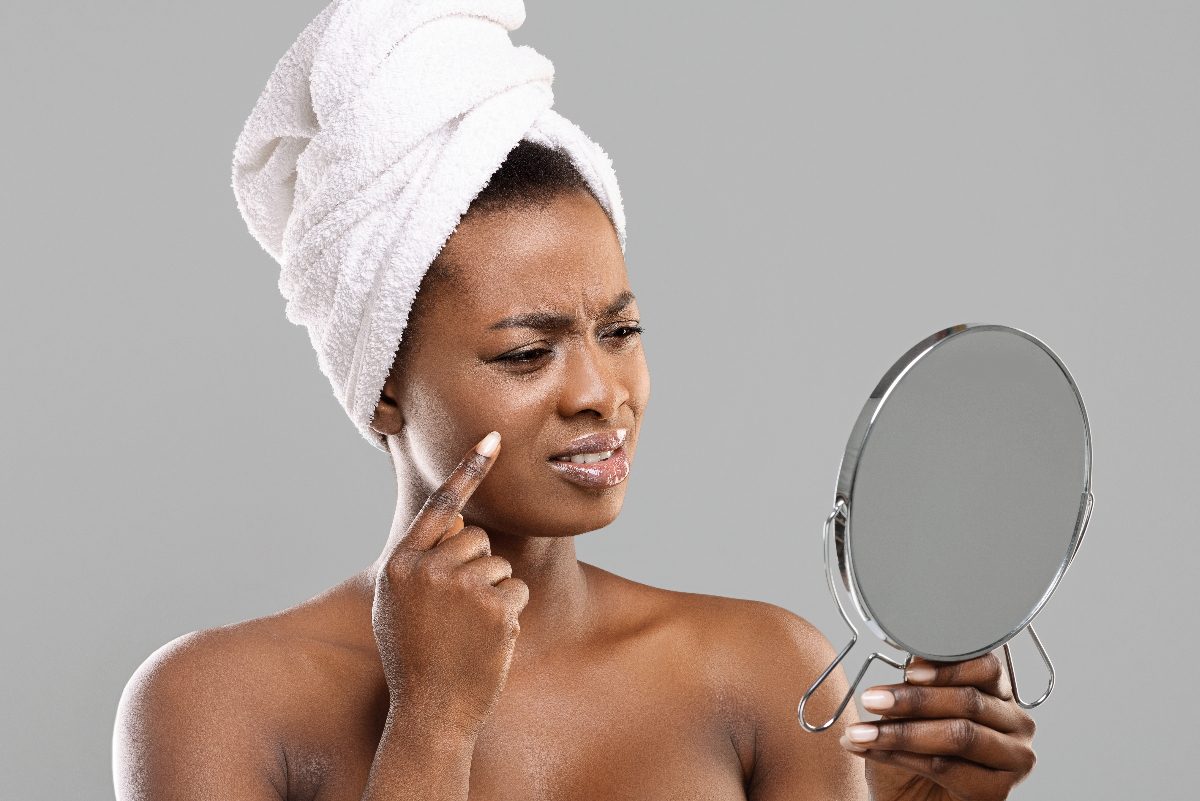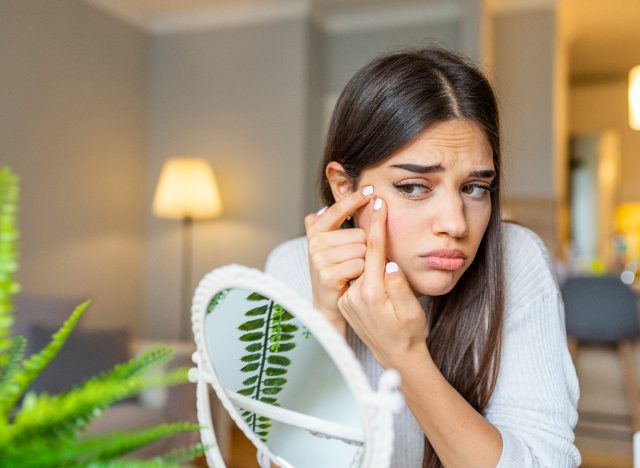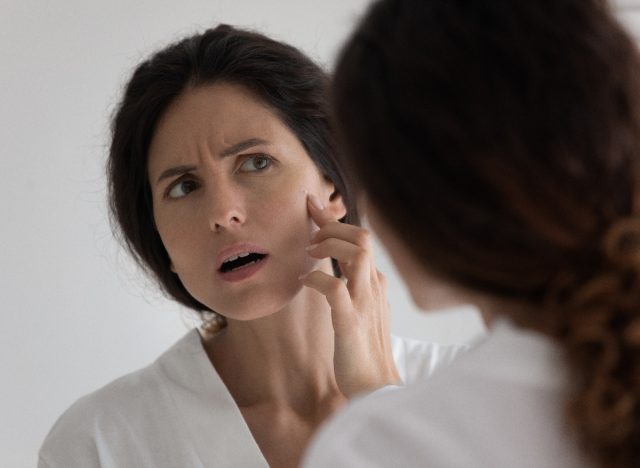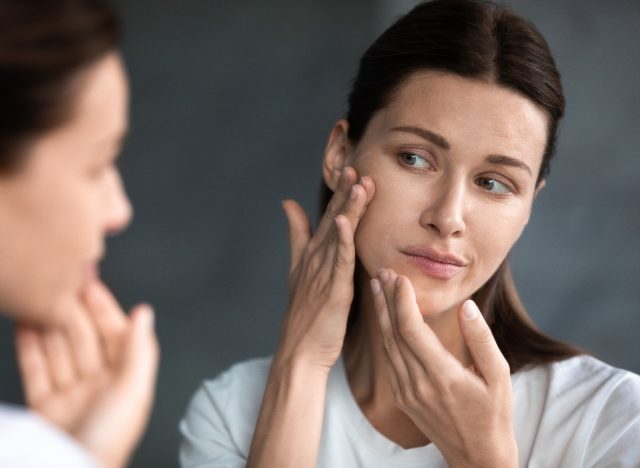New Study Reveals A Total Breakthrough In What Causes Acne

One of the most annoying, unwelcome visitors that appears on your face at the most inopportune times is—you guessed it—acne. It seems as though whenever you have a special date night planned or an important meeting, it’s likely that one or more unattractive zits will appear on a most prominent spot just in time for you to make a great impression. (Sigh—all you want is clear skin!) Before you conclude the gods are working against your social life, know that you’re not alone. As a matter of fact, the most common inflammatory skin condition in the country happens to be acne vulgaris. Even the name sounds unattractive. But don’t fret, because we’re delving deeper into what causes acne, based on a groundbreaking new study.
Although much research has been done to understand and learn the causes, there is no magical cure to make pimples disappear instantly to save your date or another special moment. But according to a recent study, there has been a breakthrough in what causes acne—and it can be a total game-changer in treating breakouts. Read on to learn more, and next, check out The 6 Best Exercises for Strong and Toned Arms in 2022, Trainer Says.
A new study was performed on six individuals dealing with acne

The next time you have an acne breakout at the actual worst time, you can thank your skin cells and the fatty acids they produce, because they may be the culprits. A new study published in Science Translational Medicine was recently performed on six individuals who suffered from acne. Those being observed were free from using acne treatments, medications, or hormone-related products for a 90-day period prior to the study.
Related: Ugly Side Effects of Not Showering After Exercise, Says Science
Fat cells in the skin can be a major culprit of your acne breakouts

Scientists biopsied areas of skin, both with and without skin lesions. The research found that fibroblasts—the cells in connective tissue that form and upkeep your skin structure—actually play a significant role in acne breakouts. Some of these fibroblasts can be activated by bacteria known as “cutibacterium acnes,” which can cause your skin to become inflamed when you get a breakout. The combination of fibroblasts and the bacteria causes “reactive adipogenesis,” which, in layman’s terms, means the fibroblasts transform into fat cells. Simultaneously, the process stimulates the release of a peptide containing antimicrobial components, known as cathelicidin (which is part of the body’s natural immune system).
Related: Cindy Crawford’s Best Skincare And Fitness Tricks In Her 50s
This research reveals fat cells can be crucial in targeting acne treatment

This finding is huge and sheds a whole new light on acne and its treatment. Richard Gallo, a dermatologist from the University of California in San Diego and one of the study authors explains, “These findings may transform the way we treat acne.” Gallo adds, “Previously, it was thought that hair follicles were most important for acne to develop. In this study, we looked at the cells outside of the hair follicle and found they had a major effect on controlling bacteria and the development of acne” (via ScienceAlert). This newfound information can be instrumental in establishing fresh possibilities in the treatment of acne.
For more…

For more Mind + Body news, check out 5 Best-Kept Secrets To Losing Weight In Your 50s, Trainer Says and The 3 Best Strength Training Exercises To Shrink Belly Fat Fast, Trainer Says.








